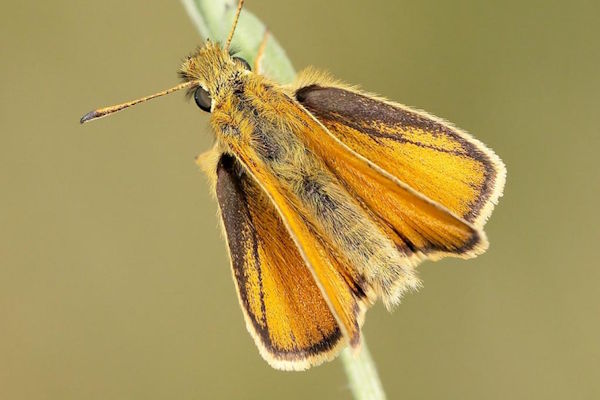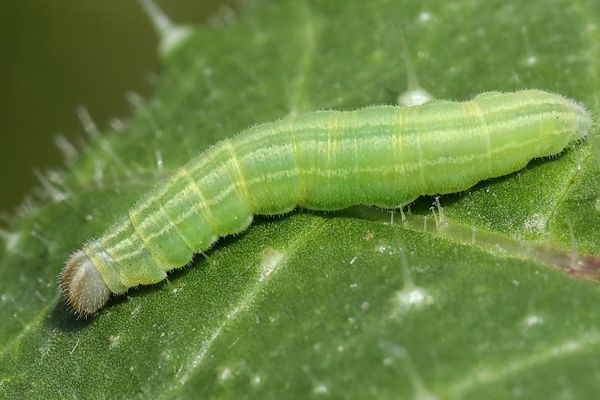This marker on the Cambridge Butterfly Trail is at King’s Hedges recreation ground – see the map above.
The Essex skipper is a small, orange-brown butterfly commonly found in southern and eastern England, particularly in warm, grassy habitats like meadows, field edges and roadside verges. It closely resembles the Small skipper, but can be distinguished by the black undersides of its antennae tips, a subtle yet reliable feature for identification.
First recorded in the UK in 1889 in Essex, the species has since expanded its range significantly northwards and westwards. Adults fly from late June through August, feeding on nectar from knapweed, thistles and other wildflowers.
Females lay eggs on grasses such as cock’s-foot, where caterpillars overwinter and later feed concealed inside rolled leaves.
Essex skippers prefer grasslands with a mix of tall, fine-leaved species, and their presence can indicate good-quality, unmanaged or lightly grazed habitats. Though still widespread in parts of England, they depend on sensitive grassland management to maintain the structure and diversity they require.
For more information, please visit Butterfly Conservation’s page on this species – Essex skipper.





